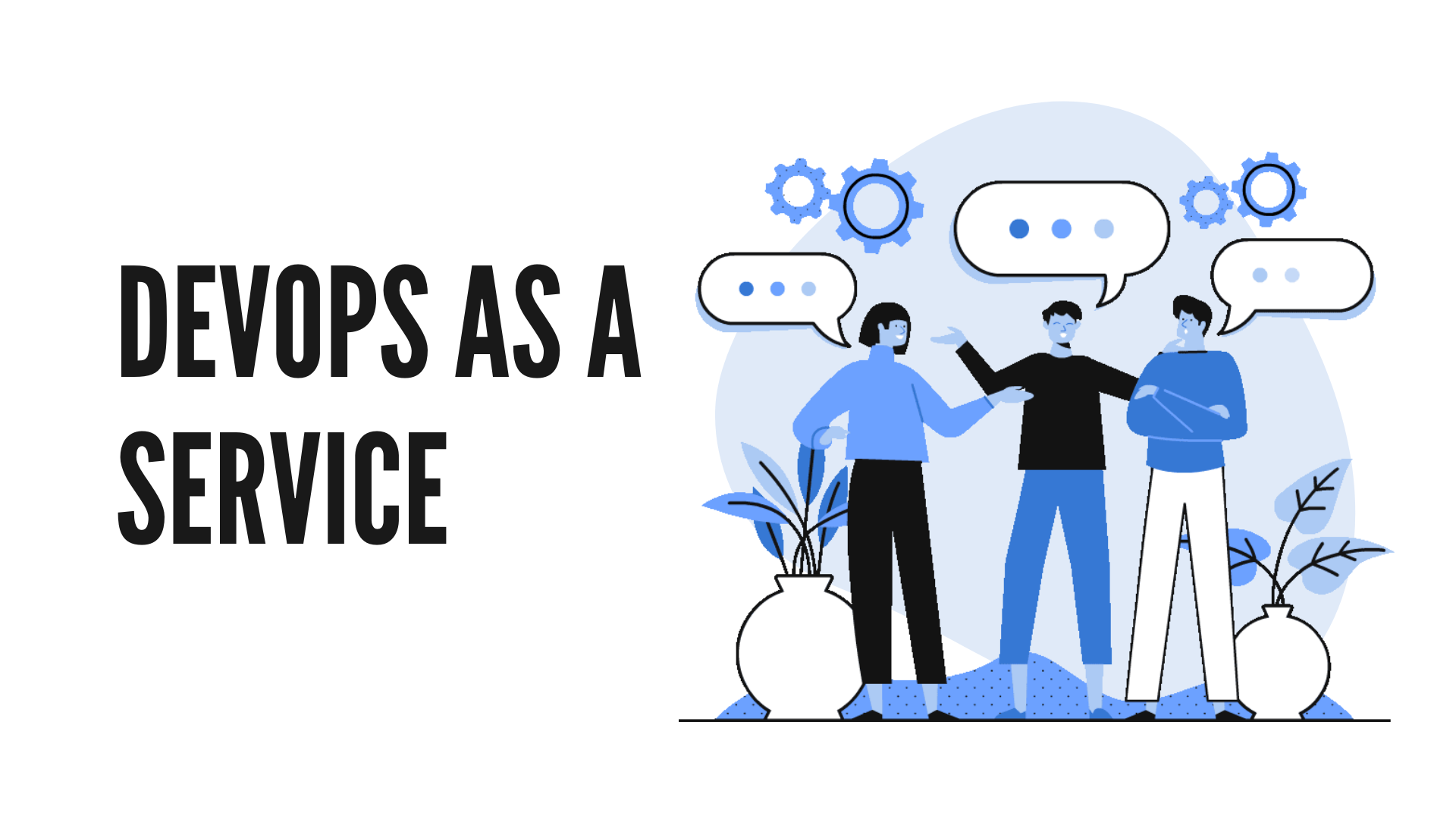Can you guess one effective way of optimizing operations and simultaneously ensuring success in the business world? I have two words for you – operations and development. These two could together bring a world of difference in the business world by streamlining, optimizing, and simplifying operations. They are known as DevOps in the business world, and they help to deliver value to customers efficiently. This approach is grasping strongly in the realm of software development, where there is a constant need for collaboration and process automation. Thanks to DevOps, this is all possible now. While many companies have adopted DevOps internally, others are turning to DevOps as a Service (DaaS) to leverage external expertise and resources. Here are five signs that indicate your business could benefit from DevOps as a Service. But first, we will go through in detail what DevOps is and what DevOps as a service could achieve in the hour of need.
What is DevOps?
DevOps is a cultural and technical movement that emphasizes collaboration, communication, and automation between software development and IT operations teams. DevOps seeks to break down silos between these traditionally separate functions and foster a culture of shared responsibility for delivering high-quality software products and services.
Key Principles of DevOps
1. Culture: Encourages collaboration and continuous improvement by breaking down silos between teams for faster delivery.
2. Automation: Streamlines tasks, reduces errors, and accelerates software delivery through automation of infrastructure and deployment processes.
3. CI/CD: Automates code integration, testing, and deployment, which ensures rapid and reliable software updates.
4. IaC: Manages IT infrastructure through code, ensuring consistency and scalability while minimizing configuration errors.
5. Monitoring and Feedback: Emphasizes continuous monitoring and analysis for performance optimization and informed decision-making.
Need for DevOps
1. Limited Internal DevOps Expertise
DevOps demands a deep and thorough understanding of the software development world and IT operations. Without skilled professionals who can bridge the gap between these two domains, implementing DevOps practices effectively can be challenging. If your organization lacks in-house DevOps expertise or struggles to keep up with evolving technologies and best practices, engaging a DevOps as a Service provider can be a game-changer. These providers offer access to experienced DevOps engineers who bring a wealth of knowledge and industry insights. By leveraging their expertise, businesses can accelerate their DevOps journey without the need for extensive internal training or recruitment efforts.
2. Inefficient Development and Deployment Processes
Inefficient development and deployment processes can hinder productivity, slow down time-to-market, and increase the risk of errors and outages. Traditional siloed approaches, where development, testing, and operations teams work in isolation, often result in bottlenecks and delays. DevOps services emphasize automation, collaboration, and continuous integration/continuous deployment (CI/CD), enabling organizations to streamline their workflows and deliver software updates more frequently and reliably. DevOps as a Service provider specializes in optimizing these processes by leveraging automation tools and implementing best practices to enhance efficiency and agility across the entire software delivery pipeline.
3. Scalability Challenges
As businesses grow and scale their operations, they often encounter scalability challenges, especially concerning their IT infrastructure and development workflows. Traditional on-premises solutions may struggle to keep pace with increasing demands, which could lead to performance issues, resource constraints, and operational inefficiencies. DevOps as a Service offers scalable, cloud-based solutions that can adapt to fluctuating workloads and business requirements. Whether you need to provision additional computing resources, automate infrastructure deployments, or scale your development team on-demand, a DaaS provider can tailor their services to accommodate your evolving needs. This ensures seamless scalability without compromising performance or reliability.
4. Security and Compliance Concerns
Security, and compliance are top priorities for businesses across all industries. However, maintaining robust security measures and meeting regulatory requirements can be complex and resource-intensive, especially in dynamic environments where software is continuously being developed and deployed. DevOps practices promote a culture of security and compliance by integrating security controls and testing processes throughout the development lifecycle. DevOps as a Service providers offer expertise in implementing security best practices, performing vulnerability assessments, and ensuring compliance with industry standards and regulations. By partnering with a trusted DaaS provider, businesses can strengthen their security posture, mitigate risks, and demonstrate their commitment to data protection and regulatory compliance.
5. Need for Faster Innovation and Competitive Advantage
In today’s competitive marketplace, the ability to innovate quickly and stay ahead of the competition is essential for business success. Traditional development methodologies that rely on lengthy release cycles and manual processes can stifle innovation and impede agility. DevOps practices enable organizations to iterate rapidly, experiment with new ideas, and respond to market changes more effectively. By embracing DevOps as a Service, businesses can tap into a wealth of tools, technologies, and expertise to accelerate their innovation efforts. Whether it’s leveraging cloud-native solutions, adopting microservices architecture, or implementing containerization, a DaaS or DevOps as a service provider can help businesses modernize their development practices and gain a competitive edge in the market.
To sum it all up, DevOps as a Service offers a fascinating solution for businesses looking to overcome the challenges of modern software development and operations. By partnering with a trusted DaaS provider, organizations can access the expertise, resources, and tools they need to optimize their development processes, enhance agility, improve security, and drive innovation.
